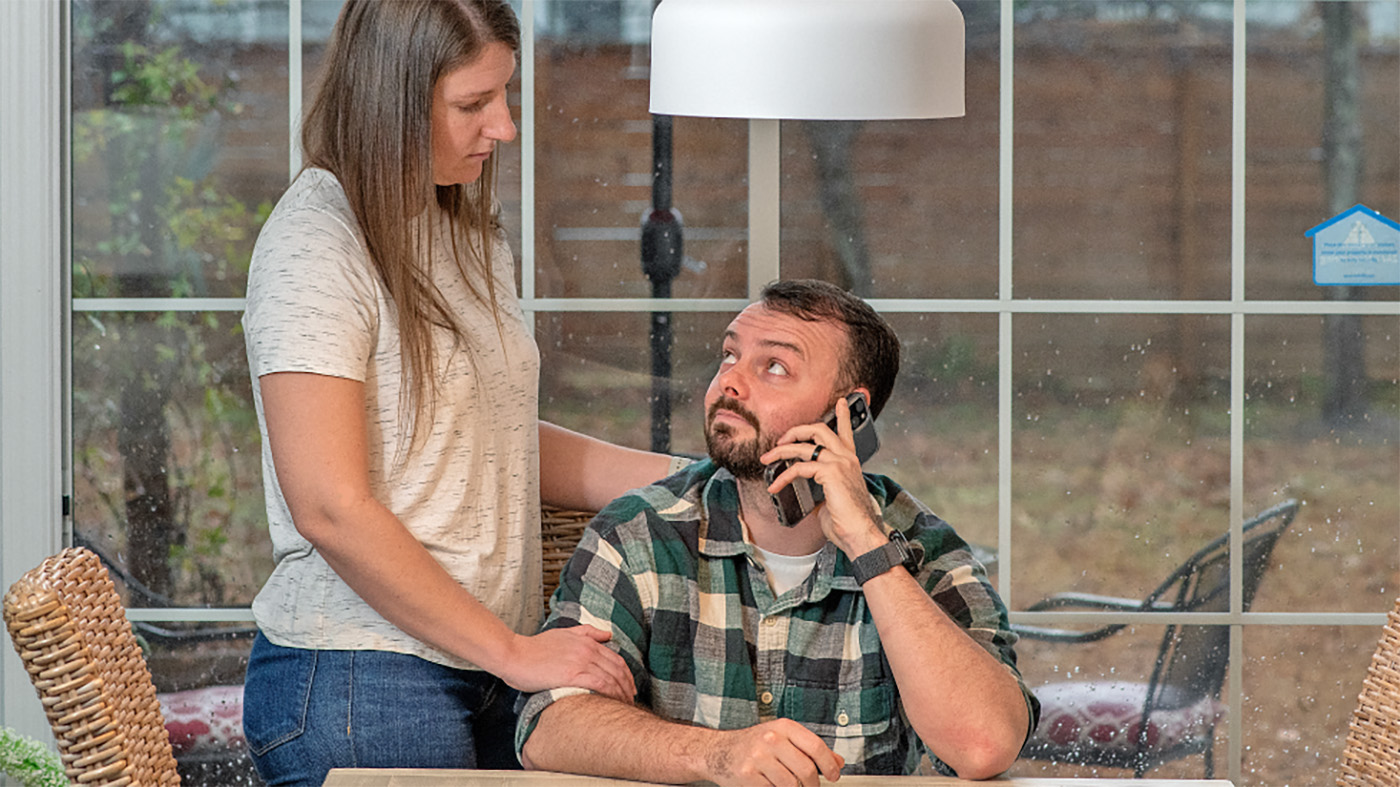May is Mental Health Month and this means you may be seeing TV reports, articles and social media posts linking poor mental health to an increased risk for suicide.
While it’s important to have conversations about mental health, mental health diagnoses are only involved with about half of those who die from suicide. So, even though mental health can be a factor when it comes to suicide risk, it doesn’t paint the full picture.
There are often multiple factors—spanning physical and mental health—involved in suicide risk. These are called risk factors, and you might be surprised to learn financial, housing, relationship and legal issues can play a role as well as lack of community support, insufficient access to health care resources and moral injury. These risks are sometimes fluid and can change over time, both in occurrence and intensity.
It’s essential to remember, however, that just because you or a Veteran loved one are facing challenges doesn’t mean suicide is inevitable. There are things you can do to manage risk factors and VA has resources to help bolster factors to lower your risk.
Understanding risk and protective factors for suicide
There’s no single cause of suicide. It’s the result of a complex interaction of risk and protective factors at the individual, community and societal levels.
Risk factors are associated with an increased likelihood of suicide-related behaviors and can include:
- Prior suicide attempt history.
- Certain mental health conditions.
- Access to lethal means like guns or certain medications.
- Stressful life events, such as divorce, job loss or the death of a loved one.
Protective factors can help offset those risk factors and are characteristics associated with a decreased likelihood of suicidal behaviors. They include:
- Access to mental health care.
- Feeling connected to other people.
- Positive coping skills.
Veterans also have unique characteristics and experiences related to their military service that may increase their suicide risk or protect them against it:
- Veteran risk factors: transition-related challenges, posttraumatic stress disorder, traumatic brain injury and experience with guns.
- Veteran protective factors: resilience, a sense of belonging and purpose through military service, access to VA mental health care and care for substance use disorders, and positive coping skills learned in high-stress settings.
How to balance risk and protective factors
Now that you know more about risk and protective factors, what’s the next step? Working on deceasing risk factors and increasing protective factors.
Figuring out where to start can seem overwhelming. But you don’t have to go through it alone. VA has a range of resources and a network of support for all Veterans, including those who don’t and may never seek care within the VA health care system.
- Whether you need emergency medical care, employment assistance, or housing or financial-related services, or you’re looking for information for women Veterans, LGBTQ+ Veterans or Veteran caregivers, we have resources tailored to you.
- You can turn to VA for almost anything, including evidence-based treatments for:
- Parenting resources
- Safety resources
- Understanding suicide loss
- National Veterans Financial Resource Center (FINVET)
Don’t wait. Reach out. is another good place for Veterans to find support for issues like educational challenges, experiencing grief or loss, feelings of isolation, health challenges, life transitions, living with a disability, and relationship challenges.
If you’re a Veteran in crisis or concerned about one, contact the Veterans Crisis Line to receive 24/7 confidential support. You don’t have to be enrolled in VA benefits or health care to connect. To reach responders, Dial 988 then Press 1, chat online at VeteransCrisisLine.net/Chat, or text 838255.
Pay attention to your overall well-being
Your whole health—not just mental health or just physical health—is crucial. Reach out for support if you need it. No matter what you’re facing, help is available, and hope is possible.
Topics in this story
Link Disclaimer
This page includes links to other websites outside our control and jurisdiction. VA is not responsible for the privacy practices or the content of non-VA Web sites. We encourage you to review the privacy policy or terms and conditions of those sites to fully understand what information is collected and how it is used.
More Stories
Bob Jesse Award celebrates the achievements of a VA employee and a team or department that exemplifies innovative practices within VA.
The Medical Foster Home program offers Veterans an alternative to nursing homes.
Watch the Under Secretary for Health and a panel of experts discuss VA Health Connect tele-emergency care.







What to do when your MH provider seems to lose interest in helping you and continue therapy, ie, “transitioning you to discharge from therapy” regardless of how you feel. Knowing you have suicidal ideations and made at least one attempt in front of a previous MH provider. Any help there? Also, what about VHA Directive 1230 Outpatient Scheduling wherein it is impossible to get an appointment sooner for a safety related health issue (not suicide or MH) because the VA can NOT have cancellation lists nor any other kind of list that might be helpful in getting someone seen sooner.
Fantastic article. Good information with user friendly links to resources.
I wonder if veterans with other than honorable discharges have a greater rate of suicide than other veterans. Such adverse discharges would probably result in difficulty in finding employment, and that would lead to financial problems, and possibly homelessness.